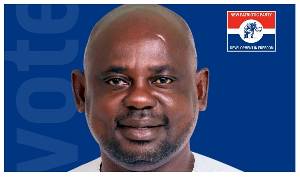In a surprising turn of events, the Electoral Commission (EC) of Ghana has overturned its previous verdict regarding the Fanteakwa North parliamentary elections, declaring Nana Kodua, the candidate from the New Patriotic Party (NPP), as the rightful winner. This decision comes after a series of complaints and legal challenges raised by the NPP following the initial announcement of the election results, which had declared the opposition candidate as the winner. The EC's reversal has sparked mixed reactions among political circles and the electorate, raising questions about the electoral process and its integrity.
The Fanteakwa North constituency has been a focal point of contention in Ghana's recent electoral landscape. The initial results, which were announced shortly after the elections, showed a narrow victory for the National Democratic Congress (NDC) candidate. However, the NPP contested these results, claiming irregularities in the vote counting process and alleged discrepancies in the electoral rolls. Following an investigation and further scrutiny of the electoral processes, the EC found sufficient grounds to revise its earlier decision, ultimately declaring Kodua the winner. This move is seen as a crucial step in restoring confidence in the electoral system, although it has also intensified the political rivalry between the NPP and NDC.
Nana Kodua's declaration as the elected Member of Parliament has been met with celebration among his supporters, who view this as a validation of their efforts and a reflection of the constituency's true political sentiment. In his acceptance speech, Kodua expressed gratitude to the electorate for their support and emphasized his commitment to addressing the pressing issues facing Fanteakwa North, including infrastructure development, education, and healthcare. He called for unity among constituents, urging them to work together for the betterment of the community, regardless of political affiliations. Conversely, the NDC has expressed disappointment and has vowed to challenge the EC's decision, asserting that the electoral process should be transparent and fair.
The EC's decision not only impacts the political dynamics within the Fanteakwa North constituency but also has broader implications for Ghana's electoral landscape. As the nation approaches future elections, the need for electoral reforms and transparency has become increasingly evident. The EC must work diligently to restore public trust and ensure that all political parties feel confident in the electoral process. Moving forward, it is essential that the EC engages with stakeholders to address concerns and implement measures that safeguard the integrity of future elections, thereby reinforcing the democratic principles that underpin Ghana's governance.



